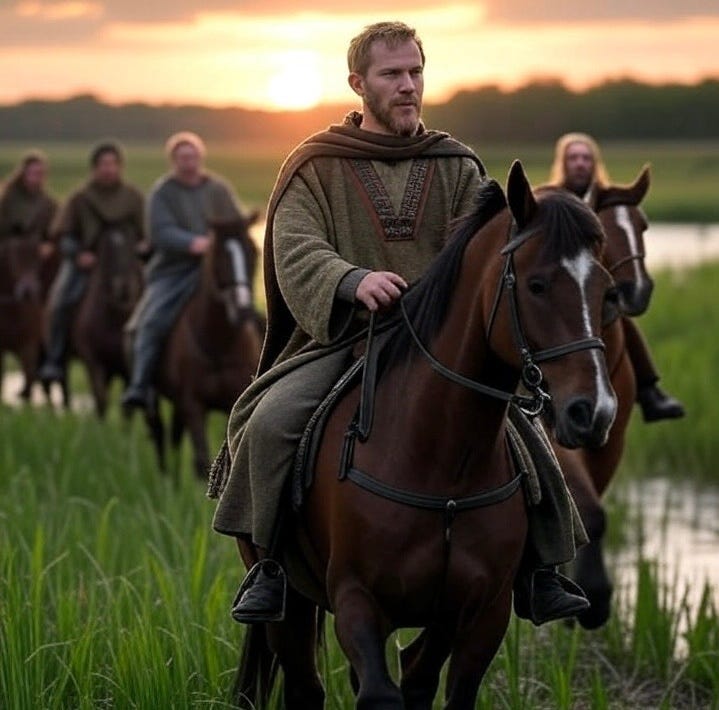The AngloSaxon Chronicle tells of how 7 weeks after Easter, King Alfred left the marshes to reclaim his kingdom. But why did he choose this time to start the official fight back?
After the death and resurrection of Christ, He appeared to the disciples on numerous occasions, giving them the Great Commission, and telling them to remain in Jerusalem until the Holy Spirit comes upon them. This period of time, from the Resurrection and Pentecost, was exactly 7 weeks plus one day (50 days).
According to the book of the Acts of the Apostles, the Holy Spirit came into the locked upper room like a gushing wind at Pentecost. Tongues of fire appeared above their heads. They then went out into the streets, and St Peter preached with 3,000 people coming to follow Christ on that day. This was the start of the Church.
Pentecost was a key festival for both Christians and the Israelites. In the Old Testament it was called Shavout. It celebrated the wheat harvest, and also the giving of the Torah to Moses, symbolising the Covenant.
To Alfred, Pentecost was not only an important Christian festival, but it represented Jesus’ disciples leaving the place of hiding and the start of the Church’s mission.
This shows the departure from the marshes was not just a military quest to regain the kingdom, but a religious and spiritual one as well.
The Church was called to evangelise the World and spread the news of God’s Kingdom. So by leaving the marshes on this date, Alfred was associating himself with this mission. He saw the defeat of the Heathen Horde as part of his Christian duty.
From a modern perspective, where Christianity is assumed to be a pacifist religion, this might be an attitude which seems in contradiction to the Gospel. Christ did say to turn the other cheek to the individual enemy who strikes you, but He didn’t mention this was to used in statecraft. Where one nation comes against another, turning the other cheek is not the appropriate response.
In fact, the Bible supports self defence. Exodus 22 v 2
If a thief is caught breaking in at night and is struck a fatal blow, the defender is not guilty of bloodshed; but if it happens after sunrise, the defender is guilty of bloodshed.
This suggests that if one is defending their home then appropriate force can be used.
Even Christ instructs his follows to take swords with them for protection.
Luke 22:36
“He said to them, ‘But now if you have a purse, take it, and also a bag; and if you don’t have a sword, sell your cloak and buy one.
It could be argued that states should defend themselves, but should not go on speculative wars, conquering other nations. Obviously, there are nuances around this, as well as the Theory of Just War. Which looks to qualify warring against neighbours to promote and exact justice.
Violence in Christianity should be proportionate, and Alfred was clearly acting in self-defence against the invaders. And to limit the violence, his goal wasn’t to wipe out the Danes, but was seeking to make them brothers and sisters in the Faith.
History is so frequently seen through a materialist lens, but especially in this case, understanding the religious culture of the time reveals deeper meanings.
By leaving the marshes at Pentecost, it told his fellow countrymen that Alfred’s desire to regain the kingdom was a Christian act. If the people believed God was on his side, it may have inspired them to fight harder, stronger and with resolve. Maybe this belief was enough to win against the insurmountable odds.
But whatever the effect this likely had, by exiting at Pentecost, King Alfred showed he had the conviction he was doing God’s will.




